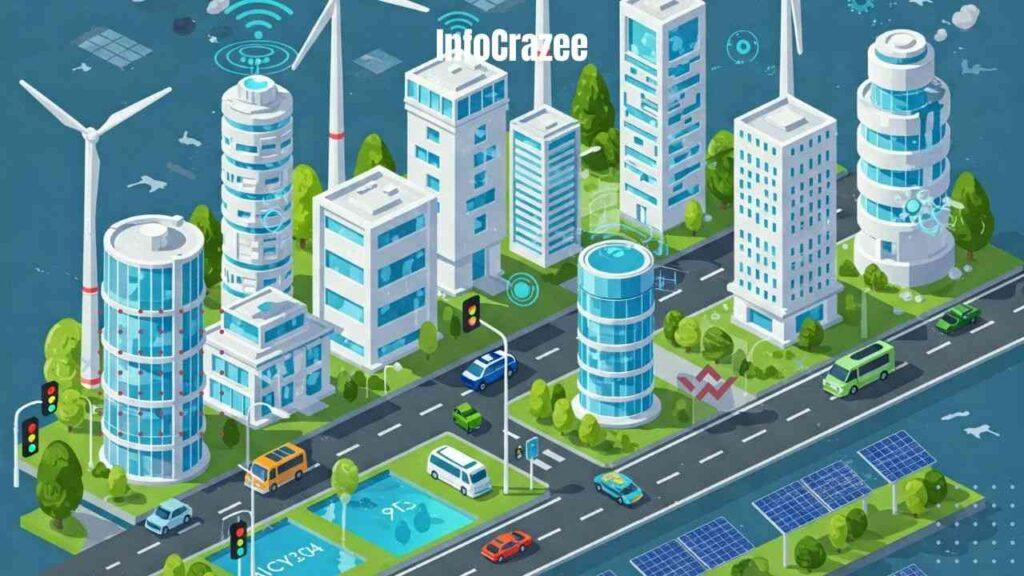Future Tech That Will Change the World: Exciting Innovations You Need to Know
Have you ever looked around and thought, “Wow, the future is already here”? Well, buckle up, because the next wave of technology is set to be even more mind-blowing. From smarter homes to cures for once-untreatable diseases, the tech that’s just around the corner could change our lives in ways we can’t even fully imagine yet.
Let’s dive into some of the most exciting future technologies you need to keep an eye on. (And yes, it’s okay to geek out a little — we’re right there with you.)
1. Artificial Intelligence (AI) That Actually Thinks
We’re not just talking about chatbots or voice assistants anymore. Future AI could think, plan, and even create in ways that feel incredibly human.
- Real-world example: Imagine an AI that can help your doctor design a treatment plan just for you — one that’s based on your unique biology, not some generic formula.
- Why it matters: Smarter AI could make industries like healthcare, education, and even farming way more efficient and personalized.
💬 Fun thought: One day, you might have an AI “life coach” who truly understands your goals, struggles, and dreams.
2. Quantum Computing: Solving the Impossible
Quantum computers sound like science fiction, but they’re becoming a reality. Unlike regular computers, which think in 1s and 0s, quantum computers can think in many states at once. It’s like comparing a horse and buggy to a rocket ship.

- Real-world example: Quantum tech could discover new medicines, crack complex codes, and even predict the weather with crazy accuracy.
- Why it matters: Problems that would take today’s supercomputers millions of years could be solved in minutes with quantum power.
🎯 Heads-up: Major companies like Google, IBM, and Microsoft are already racing to build usable quantum machines.
3. 3D Printed Organs: Saving Lives on Demand
What if you could simply “print” a new heart, lung, or kidney when you needed one? Thanks to 3D bioprinting, this isn’t just wishful thinking.

- Real-world example: Researchers have already printed simple tissues like skin and cartilage. Full organs are next on the list!
- Why it matters: This could end the shortage of organ donors and make transplants much safer and faster.
👩⚕️ Imagine: No more waiting lists or worrying if your body will reject a donated organ.
4. Smart Cities: Living in a Real-Life Sci-Fi World
Picture this: streets that fix themselves, traffic lights that know when you’re running late, and entire neighborhoods powered by clean energy. That’s the idea behind smart cities.

- Real-world example: Cities like Singapore and Dubai are already testing “smart” features like driverless taxis and AI-controlled energy grids.
- Why it matters: Smart cities could save energy, reduce pollution, and make life a whole lot more convenient.
🚦 Bonus: Your daily commute could soon be smoother and less stressful than ever before.
5. Space Travel for Everyone
Once reserved for astronauts and billionaires, space travel is slowly becoming something ordinary people might experience.

- Real-world example: Companies like SpaceX, Blue Origin, and Virgin Galactic are working on making space tourism a real thing.
- Why it matters: Not only could it open up incredible adventures, but the research needed for space travel often leads to new inventions here on Earth.
🚀 Imagine this: Posting a selfie… from orbit.
6. Brain-Computer Interfaces: Thinking Your Way to Action
Ever wish you could send a text just by thinking it? Brain-computer interfaces (BCIs) might make that possible.

- Real-world example: Elon Musk’s company Neuralink is developing technology that links your brain directly to computers.
- Why it matters: BCIs could help people with disabilities, boost memory, and even let us communicate faster and more naturally.
🧠 Big wow: Some early tests have already helped paralyzed patients move a computer cursor just by thinking!
What This Means for You
It’s exciting — and maybe a little overwhelming — to think about all this future tech. But here’s the good news: you don’t need to be a scientist or billionaire to be part of it. Staying curious, learning new skills, and being open to change are the best ways to ride the wave of innovation.
If you’re passionate about tech, now’s a great time to:
- Follow tech news and breakthroughs
- Learn basic coding or AI skills
- Support companies and policies that invest in smart, ethical innovation
And hey, even if you’re not planning to build your own robot or print a liver anytime soon, just knowing what’s coming gives you a major head start!
FAQs About Future Tech
Q1: Will AI replace human jobs completely?
A: Not exactly. AI will definitely change the kinds of jobs we do, but it’s more about working with AI than being replaced by it. Think of it like getting a really smart assistant who helps you do your job better.
Q2: How soon will space travel for regular people actually happen?
A: It’s getting closer! Some companies are already running test flights. Within the next 5–10 years, space tourism could be an option for people (although it’ll still be pretty pricey at first).
Q3: Should I be worried about future tech being dangerous?
A: Like any powerful tool, tech can be used for good or bad. The key is making sure smart people — scientists, governments, and everyday users — work together to use it responsibly.
Ready to explore the future with us? Keep following Infocrazee for more updates on the amazing innovations shaping tomorrow.






